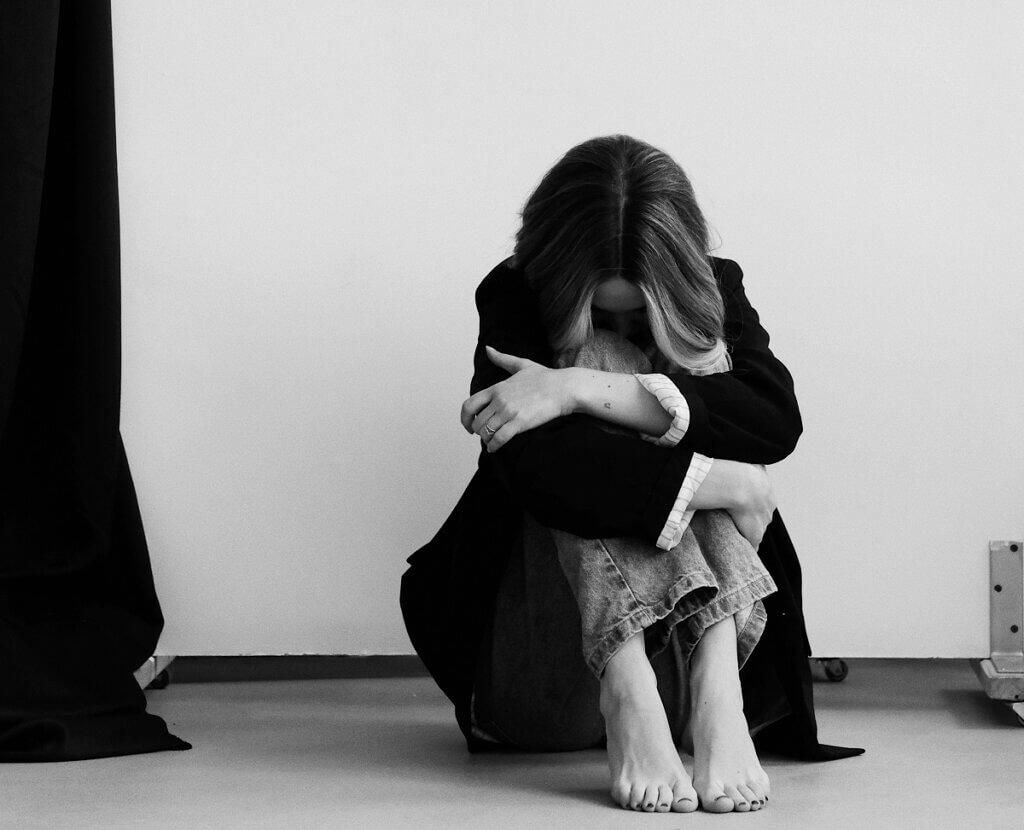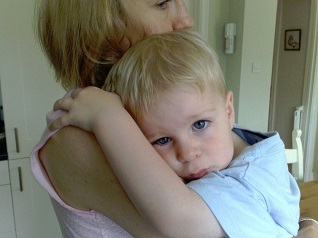People who grow up with food allergies typically have a different relationship to food than those who grow up allergy-free. While this by no means indicates that an eating disorder will naturally develop (far from it!), it is worth noting that someone who has experienced a frequent adverse reaction after eating will typically think a bit more about what they put into their mouths than those who have not. To the casual observer, such ‘finickiness’ may look like a disordered eating pattern, when in fact it is simple self-preservation. Being aware of what is and what is not good for you is far from an eating disorder. An allergy is a physical reaction, in which the body itself rejects a substance it deems to be harmful. An eating disorder is a mental health condition, in which the subject develops a mentally pathological relationship with food. The former tends to be related to internal physiology, the later to psychology (body image tends to play a large part in the development of eating disorders – not feelings of physical illness following eating). In general, the two are mutually exclusive. In certain circumstances, it is not inconceivable that bad experiences with food as a child may lead to disordered eating as one grows older – meaning that people with serious food allergies may in some cases be vulnerable to eating disorders – but in general the causal mechanisms behind each are entirely separate.

‘Allergies’ As An Excuse For Disordered Eating
Perhaps more problematically, some people who have a psychologically difficult relationship with food may convince themselves that they are allergic to certain foods, or even (more deceptively) use ‘allergies’ as an excuse to exert extreme control over their food intake. It’s easier to tell someone that you’re allergic to the meal they’ve cooked than to refuse it on the grounds that you no longer like to eat at all. Some eating disorder survivors have come forward and stated outright that they either used faux allergies as a ‘veil’ behind which they could effectively hide their eating disorder, or adopted diets recommended for people with allergies in order to lose weight and control their diets to an obsessive degree. While these kinds of tactics do, to some people, appear to support the view that food allergies are pathological rather than physical, those who use these tactics should not be blamed for doing so. They are, after all, mentally ill, and often struggling to manage their conditions in an uncomprehending (and often enabling) society.
‘Clean Eating’, Allergies, And Disorders – A Very Gray Area…
In the centre of the allergies/dietary control/eating disorders venn diagram is Orthorexia Nervosa. This is a condition which involves people becoming so obsessed with ‘clean eating’ that they develop serious complications, often akin to those found with anorexia, but with a slightly different mental cause. Rather than obsessing about losing weight (although this may be one aspect of the condition), orthorexics become so fixated upon ‘clean eating’ (which can be a very good thing if not taken to unhealthy extremes!) that they cut out many essential food groups and restrict their diets to an inordinate degree. Sometimes, these people may convince themselves that they are allergic to certain food groups, when the truth is in fact nothing of the kind. Again, orthorexics are not to be blamed for their faux allergies -they do, after all, genuinely believe that they are allergic to these things. Rather than playing the ‘I’m more allergic than you’ game, we can perhaps instead reduce the preponderance of ‘allergies’ in eating disorder sufferers by making it clear just how un-glamorous and nasty allergies really are. By telling the truth of allergies, we can perhaps make it clear that what an orthorexic THINKS is an allergy may simply be a psychological method of dietary control – and thus help them to gain a better perspective of their motivations for eating in the way that they do.
Special thanks to Helen Hilton for this guest blog.
Ed: I have just this week heard of the term ‘Orthorexic’, just days before this guest blog came into my inbox. It’s something I will be looking into more over the coming weeks and month as it really intrigues me.
I can state for a fact that allergies are not all in MY mind. I will have an allergic reaction to the foods I am allergic to even when I am unsuspecting that I’ve consumed them. It’s instant. It is my body reacting. However, if I am having trouble with the my skin or experiencing repeated unexplained reactions or even known explained reactions… I become very wary of food. In fact my appetite almost disappears. This can last for days, sometimes weeks, which is not normal for me. I love food and have a a healthy appetite. But what part is the mind playing for many of us? Do some of my milder reactions have more to do with my mind being in control? or is there a real reaction taking place?
A fascinating subject and I’d love to hear your reactions and thoughts on this.












Did you see the hatchet job on clean eating on the TV the other day? I was so mad. I know that orthorexia exists, of course, but it seemed to me to be dissing people for wanting to eat more healthily. I have often found that makes people with unhealthier diets feel awkward and I worried that was the main premise behind that programme. Maybe not, but it seems a bit convenient to me to slag off clean eating as ‘orthorexia’. That said, quite a few of the people they interviewed did clearly have a disordered way of thinking about food.
In essence, how I have come to think of it is that when we get to hypersensitivity to multiple types of food (not classical IgE reactions), things may have morphed from a genuine sensitivity to a few foods with all the traumas and mind control etc that come with those to a disordered thought pattern. What we focus on becomes us – we build strong neural pathways in the brain which then become subconscious and we start seeing many more or even all food – and eventually other stuff in life – as danger. That is precisely what happened to me (I think!) and I have had to do a shed-load of neuroplasticity training to turn it back around. That is a whole different ball game to orthorexia where someone has become sort of OCD about eating healthy foods. Although, I imagine it is a similar process just different start now I think about it.
In short, I think there is disordered eating patterns in anorexia, orthorexia and some cases of multiple sensitivity. We have to acknowledge that and help people deal with it. It’s tough but you can: I am now from 20 foods back almost to normal but it took me 2 years of brain retraining and trauma work to get there! That’s what I’ve been writing my healing series about: fascinating stuff! Thanks – that helped me clarify in my mind how feel about orthorexia! Am still working on it!
Thanks Micki, this is truly fascination. I know from my own experience how powerful the mind can be so this all makes complete sense to me. And as for that programme, no I missed. Sounds like I did the right thing by not watching. If you’re going to have a issue, like OCD or other eating disorder, wouldn’t you say one like orthorexia was far better to have than someone who eat junk with wild gay abandon? I know it must be restrictive and can be unhealthy if total food groups are cut out without replacing those nutrients etc. ‘Clean eating’ is my thing at the moment. I find my eczema, breathing, sleeping, general health etc. is vastly improved if I avoid all the nasty freefrom processed food. Thanks so much for the comment. I’m still trying to work how I feel about orthorexia…
Hi Ruth,
I was wondering if I could email you about some questions I had in regards to nutrition,allergies and diet. For my masters program I have a project that will focus on these things and would love to speak to you
Of course, please email ruth@whatallergy.com